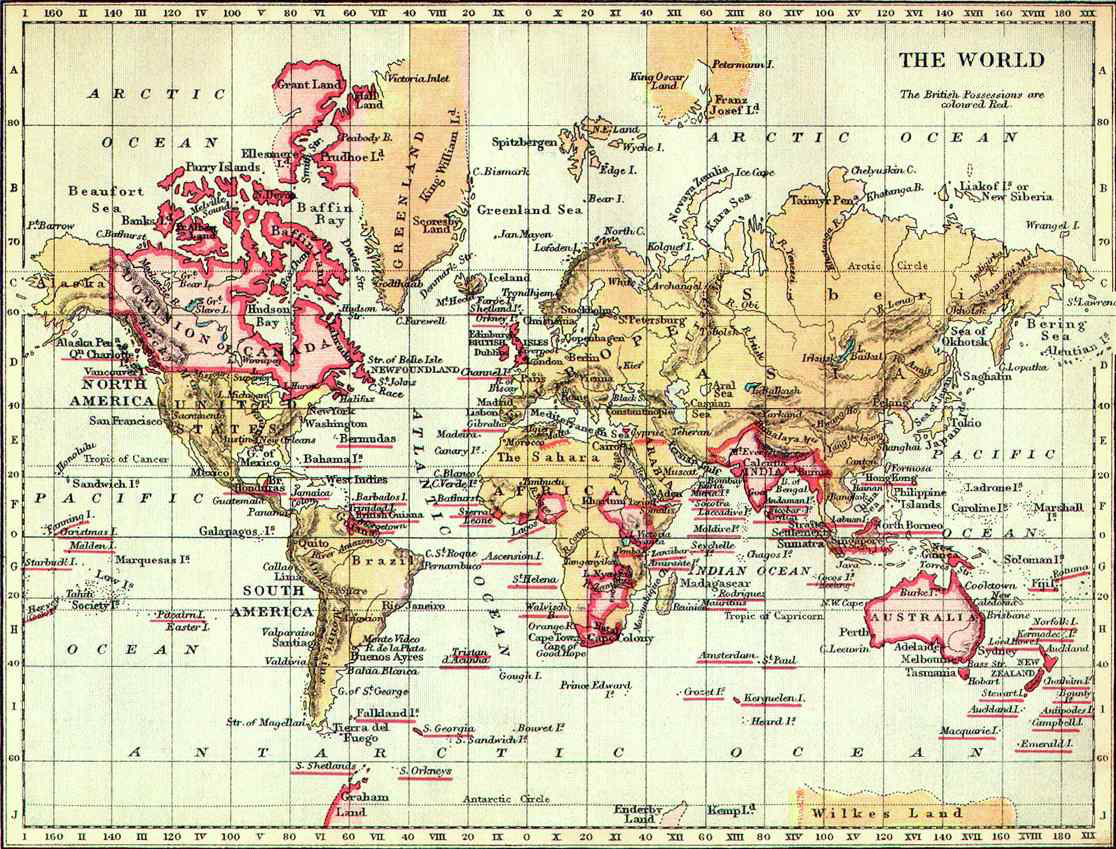Geographies
Learn what was happening across the globe during the travels that occurred in 80 Days.

Europe
- The Franco-Prussian War had just occurred.
- Germany is suffering a small pox epidemic. Vaccination becomes mandatory.
- Britain buys into part ownership of the Suez Canal enterprise.
- An attempt by Ottoman agents to collect taxes in Herzegovina leads to a popular uprising, and the rebellion spreads to Bosnia.
Central and Southeast Asia
- Queen Victoria is appointed as Empress of India
- The Meiji government declares religious freedom and ends Confucianism as official state ideology.
- Japan forces the Koreans to accept a trade agreement similar to Commodore Perry's demands to the Japanese government back in 1853.
- Japan eventually goes into a state of inflation
Eastern Africa
- Ethiopia had established itself as an independent nation, free from any European colonization.
- Ruled by Emperor Tekle Giyorgis II, the country was plagued by internal conflict, and was a major player in the politics of the region
- Somalia was on the verge of colonization when it would be divided up by several different European Colonies
- Controlled by the Sultanate of the Geledi, Somalia had become the most powerful government in Eastern Africa before the Sultan Ahmed Yusuf was usurped by European invaders.
- Eastern Africa is open to player exploration early in the game, and while it’s not necessarily the fastest way to circumnavigate the globe, it provides some interesting insights into Jayanth’s perspective on race and colonization in the Victorian Era.
Pacific Region
Australia- Completion of the Overland telegraph. This was important especially once it was connected to the Java-to-Darwin submarine telegraph cable which made it much quicker to communicate with Europe.
- Victoria had passed the Education Act of 1872, which offered free secular and compulsory education. This made them the first Australian colony and one of the first jurisdictions in the world to do so.
- Electric telegraph begins operation in Honolulu.
- Hawai'i holds first election by legislators to elect William C. Lunalilo king.
- French physician George Trousseau arrives in Honolulu and is appointed to the new Board of Health by King Lunalilo.
- King Lunalilo dies. Legislature elects David Kalakaua king, resulting in a riot led by supporters of Queen Emma.
North America
- The US was deep into the era of reconstruction, America was still largely divided between the prosperous north and the economically depressed south. After the American Civil War, The US was getting more involved in foreign relations, but had few colonies outside of Oceana and Central America.
- In addition, the American West was quickly being settled, and Native populations were being quickly forced into smaller and smaller patches of land.
- Canada was still largely connected to Great Britain and under the rule of PM Alexander Mackenzie who was born in Scotland and established the first Canadian Supreme Court.
- Mexican President Sebastián Lerdo de Tejada Corral is the first Mexican President not to be born during Spain’s colonial rule of Mexico, and led the nation into a new era of independence.
Central America and the Caribbean
- Most countries had gained independence from Spain.
- The US would meddle in regional affairs because they were planning for the beginning of construction of the Panama Canal.
- Haiti had entered a period of depression where they had independence, but were still in massive debt to France. While the neighboring Dominican Republic was thriving economically just miles away on the same island.
South America
- The War of the Triple Alliance pits Argentina, Brazil, and Uruguay against Paraguay.
- The beginning of mass European emigration to Latin America is accompanied by increased foreign investment, major railway building, industrialization, organized labor, and the rise of positivist philosophy.
- In Brazil, the Free Womb Law (Lei do Ventre Livre) frees all children born to slaves.
- Bolivia and Peru engage in the War of the Pacific with Chile, with the result that Bolivia is landlocked.
West Africa
- Nigeria was still a British colony, but was moving toward independence with the other nations in western Africa.
- Britain and America had abolished the slave trade officially, but other countries continued to import slaves from Nigeria and other African nations that were anxious about losing their biggest source of profit on the Atlantic.
Western Europe
- Iceland’s growing Nationalist movement led to their declaring independence from Denmark in 1874.
- Portugal had lost its colonies in South America, and doubled down its efforts in africa in order to recoup its losses.
- Greenland was disputed territory between Norway and Denmark, but few people lived there.
- Spain was in a period of political turmoil and change. Governments shifted radically and often.
- In Jayanth’s game, this portion of Europe serves as a thrilling last leg of the journey. With time running out, Fogg and Passepartout must speed through and on to London.
The Arctic
- The arctic was still being explored at this point so there is hardly any history.
- The Royal Navy, using man-hauled sleds, reached latitude 83N in 1875-6.
This page compiled by Breanna Beck & Michael Duling.